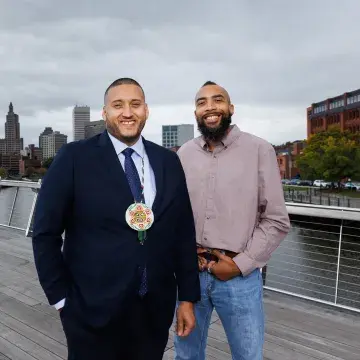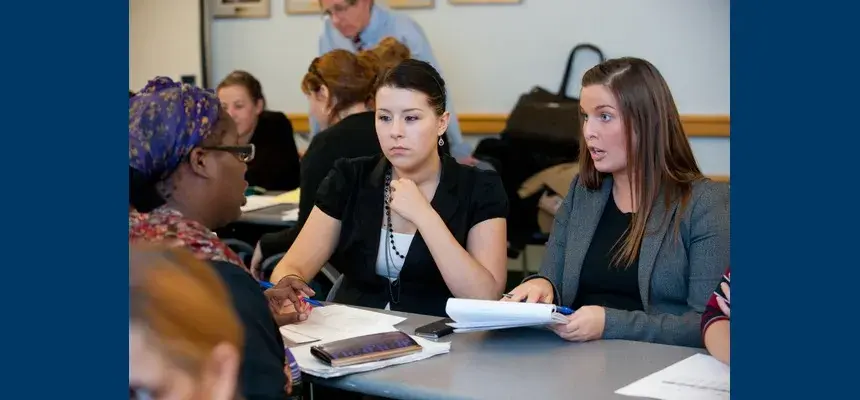
Social Justice
At RWU Law, Social Justice is core to our mission. Our public service opportunities set the stage for a lifetime of invaluable legal contributions to society.
Social Justice is embedded in RWU Law's DNA. It has been a central part of the school's mission from its inception. Some of our efforts include:
- Our Feinstein Center for Pro Bono and Experiential Education—staffed by three full-time attorney/faculty members who set goals and provide guidance—ensures an exceptional educational experience, while also allowing students to address legal need in the community and support host organizations and agencies in their work.
- Our Pro Bono Collaborative offers a unique national model for pro bono legal service based on a three-way partnership—between law school, law firm, and community organization—that identifies unmet legal needs and creates pro bono legal service projects to address those needs.
- Our groundbreaking "Race & the Foundations of American Law" was one of the first in the U.S. to teach critical thinking about the law through a mandatory course, offering important and often overlooked perspectives on race, preparing students for the fast-evolving legal landscape in which they will soon be practicing.
- Our annual Diversity Symposium offers a compelling opportunity for students in high school, college, graduate school, law school, and beyond to connect with the Rhode Island bench and bar and discuss issues of diversity, equity, and inclusion.
- Through our Pro Bono Experiential Learning Requirement, students complete at least 50 hours of law-related public service in the community as a requirement for graduation. Most of our students do much more: Between the years of 2021 and 2024, graduates completed an average of 161 pro bono hours each.
- Our innovative Semester-In-Practice Program is a capstone, full-immersion experience, in which students work full-time under the supervision of a practicing attorney for an entire semester. Past Semester-In-Practice students have worked in housing and eviction defense in Los Angeles, public defense in New Jersey, immigration in New York City, and human rights in Seoul, South Korea, among many other placements.
- Each year, through our In-House Clinics, Clinical Externships in the public interest sphere, our Public Interest Summer Stipend Program, and other pro bono activities, RWU Law students provide an astounding volume of valuable legal services, both directly to clients and through public interest organizations and government agencies.
- The pro bono and public interest contributions of the 168 graduates of RWU Law's Class of 2023 totaled 60,079 hours with an estimated value of $1,808,178.
- Each year, many RWU Law students get intensive experience in the field through our Alternative Spring Break (ASB) Program. In the past four years, at least 30% of participants have been first-year law students.
- Our annual Champions for Justice celebration is Rhode Island's premier public interest event, bringing together many of the state's top law firms, nonprofit legal service organizations, and other community partners, with RWU Law faculty, staff, students and alumni.
- Each year, RWU Law awards Public Interest Scholarships to students seeking a career in public interest and social justice work after graduation.
- Through the Public Interest Loan Repayment Assistance Program (PILRAP), RWU Law provides high levels of support for our graduates pursuing careers representing low-income clients in non-profit offices. In its dozen-plus years of participation, the law school has awarded over $500,000 to qualified graduates.
Recent News
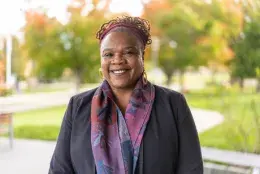
Tara I. Allen, Bruce I. Kogan Distinguished Service Professor of Law, Announced as Federal Public Defender
Professor Allen to Become Federal Public Defender for the Districts of Massachusetts, New Hampshire, and Rhode Island
~~~
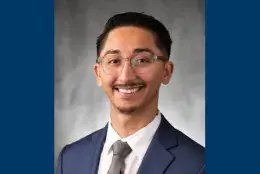
Rooted in Commitment: Geovanny Amaya L'24
Growing up as a first-generation American, Geovanny Amaya thought there was a strong chance he would go into immigration law. But when he arrived at RWU Law three years ago, he thought he should keep an open mind to other options that might present themselves.
~~~
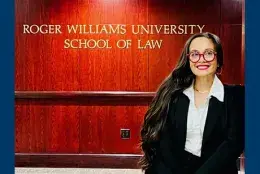
Transforming Adversity into Advocacy
“I have sought out practical experiences that align with my personal lived experiences and my dedication to public service,” she said.
~~~

